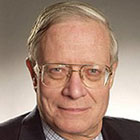Iraq war logs: experts' views
Our panel dissects what the WikiLeaks revelations mean for the Iraq war, the US and international attitudes to terrorism
Iraq war logs: experts' views
Our panel dissects what the WikiLeaks revelations mean for the Iraq war, the US and international attitudes to terrorism
The Guardian asked four experts in international law, Iraqi politics, military affairs and national security to assess the importance of the 400,000 Pentagon documents made public via the WikiLeaks website at the weekend. The experts argue that the documents do more than just reveal a casual attitude towards torture and civilian deaths during the years after the US-led invasion, but have unsettled a precarious political balance in Baghdad and exposed an almost absurd level of secrecy in western centres of power that defy modern promises of open government.

The incumbent prime minister, Nouri al-Maliki, attempted to dismiss the leaks as "media games and bubbles". He suggested that the timing of their release, just as he appears to have made decisive progress in forming a new coalition government, is a conspiracy against him. Maliki chose instead to focus on what the leaks said about the deaths caused by the US security company Blackwater, arguing he would secure justice for Iraqi citizens killed by foreign contactors.
Ayad Allawi and his Iraqiya coalition, the main rival for power, seized upon the leaks as evidence of Maliki's dictatorial ambitions and his use of Iraqi special forces to cow opposition. Iraqiya spokesperson, Maysoon al-Damluji, used the revelations to push their policy agenda, this would wrest control of security from Maliki as part of any new coalition government.
"Putting all the security powers in the hands of one person who is the general commander of the armed forces have led to these abuses and torture practices in Iraqi prisons".
Three days after the documents were released, Iraq's national security council agreed to establish a cross-government committee to examine the evidence of the endemic use of torture and extrajudicial murder by all of the state's security services.
However, the political storm caused by the WikiLeaks documents failed to ignite public outrage. The Iraqi population has lived with violent instability, a civil war and routine abuse by militias, police and the army since the invasion of 2003.
The war logs certainly provide evidence of this to the wider world but Iraqis have lived with these conditions for the past seven years. All the major political groupings now vying for power have been culpable in state-sponsored human rights abuses. Allawi was PM during the interim government from 2004 to 2005, when torture and state-sanctioned murder regularly occurred. His putative partner in any new government, the Islamic supreme council of Iraq, ran the interior ministry during 2005, when its national police was responsible for the religious cleansing of Baghdad, driving Sunnis from the city in a campaign of murder and terror.
Likewise, the two main Kurdish parties, kingmakers of any new government, have been repeatedly criticised by Amnesty International for the prisons they run in northern Iraq. Iraqis did not need WikiLeaks to tell them about the hell they have lived in since the US-led invasion.
 On its face the material looks deeply troubling but I've learnt that it's important not to begin by cherry-picking those documents that look most troubling: you have to go through each and every document, place it in its context, find other material that confirms or challenges a particular account. Then you can begin to form a solid view as to the significance of documents such as these. Things are not always what they seem. It takes time.
On its face the material looks deeply troubling but I've learnt that it's important not to begin by cherry-picking those documents that look most troubling: you have to go through each and every document, place it in its context, find other material that confirms or challenges a particular account. Then you can begin to form a solid view as to the significance of documents such as these. Things are not always what they seem. It takes time.
The content of the materials doesn't seem that surprising, against the background of the realities of war and what we already know about the steps taken by the Bush administration in the conduct of military hostilities. What is striking, however, is the rawness of the accounts, the authenticity of the entries; they cut through the sanitisation of media presentation and popular film depictions, and seem to tell a brutal set of stories.
What should we be looking for? The documents may be significant if they point to torture and abuse – and the turning of blind eyes – as a result of policy, rather than the acts of "a few bad eggs.
It is known that the Bush administration consciously disapplied the Geneva conventions to certain detainees in Iraq, to decide that some individuals – alleged "terrorists – had no rights at all under Geneva or international laws.
These documents might go a long way in confirming – or undermining – the existence of facts that would tend to show whether or not the torture and abuses described were the direct result of policy and legal decisions taken by the US defence secretary at the time,Donald Rumsfeld, and sanctioned by his general counsel, Jim Haynes.
And they show something else: President Obama's policy of moving on will fail. The damage is too great, and there is a pressing need for a proper factual accounting by the US of what happened and why.
Until that occurs, documents such as these and others that are yet to emerge – more photos and even videos of abuse at Abu Ghraib and elsewhere – will shock and will undermine US and British authority around the world.
 Dumping this much information on an entire war without context, which is generally being covered by people who don't have any real history of what happened during the course of the conflict and how things changed, has not produced much more than irritation (at the Pentagon).
Dumping this much information on an entire war without context, which is generally being covered by people who don't have any real history of what happened during the course of the conflict and how things changed, has not produced much more than irritation (at the Pentagon).
A lot of the issues raised are issues the Pentagon's been trying to deal with throughout the course of the war. You've restructured your training, your field manuals on counter-insurgency and on stability operations to deal with these issues. You've brought in new approaches to civil/military operations. You've changed the way in which you've trained Iraqi forces. You've restructured large elements of the Iraqi national police to the point where they don't have the same name.
Almost all of their commanders have changed and they don't have the same uniforms. You've dealt with a restructuring of the entire US system, not simply for handling detentions. So getting this kind of data dump has virtually no impact (on military policy) whatsoever.
(Ordinary Americans) care about the human rights aspects. They care about how we're going to leave an Iraq that is more developed and has reasonably stable military forces. They care about it when US troops commit any kind of war crimes.
All of these are things people care about a lot. They care about how WikiLeaks handled it. I think US papers like the New York Times and the Washington Post, the main papers and media, handled it reasonably well although the very nature of trying to get an article above the fold means they don't have much context.
But did it change American perceptions? In general i think the answer would be this was about two to three days work of headlines in the context of something that has been a constant media concern since 2003.
Did it alter American perceptions and interests? Only at the far margins where people are polarised anyway. If they are concerned with opposing the war they'll feel validated and if they feel that any kind of leak of classified information is truly horrifying then they'll feel validated too.
 Perhaps the most surprising thing about the release of nearly 400,000 previously secret documents about the Iraq war by WikiLeaks is the muted response in Washington. Sure, it provided a great deal more detail about how the war was fought, but a political bombshell like the Pentagon Papers this was not. Yes, we got the ritual Pentagon denunciation of the leaks, and some elected officials tried to demonstrate their national security bona fides by proposing new legislation to crack down on whistleblowing.
Perhaps the most surprising thing about the release of nearly 400,000 previously secret documents about the Iraq war by WikiLeaks is the muted response in Washington. Sure, it provided a great deal more detail about how the war was fought, but a political bombshell like the Pentagon Papers this was not. Yes, we got the ritual Pentagon denunciation of the leaks, and some elected officials tried to demonstrate their national security bona fides by proposing new legislation to crack down on whistleblowing.
Yet, it has had virtually no impact on the midterm election campaign or in the broader public probably because Americans as a whole have simply moved beyond Iraq.
The system to classify government information as secret is completely out of control. The incentives are entirely skewed towards overclassification, as officials appear to risk little when information is withheld but greatly fear the revelation of even minor details.
The 9/11 Commission was highly critical of a culture that "nurtures overclassification", which not only restricts the public's access to information but actually impairs the government's ability to share important information internally. The six years since that report's release have only witnessed an explosion in classification – to the point where many experts now say that "nine out of 10 secret documents should not be classified"
Excessive secrecy undermines government performance and erodes public trust in government action. Clearly, there needs to be some government decision-making and action that is withheld from public view. But as the tame response to WikiLeaks's release of nearly 400,000 previously secret documents demonstrates, far too much information is hidden behind the veil of government secrecy.
The Obama administration appears to have been taken in by the national security state. It needs to snap out of its grasp and get back to its original intent to restore transparency and trust to the functioning of government.
Dr Toby Dodge, school of politics and international relations, Queen Mary, University of London

The revelations contained in the WikiLeaks Iraq war logs triggered a fierce political debate in Baghdad when they were released.
Iraqi politics are still deadlocked nearly eight months after an inconclusive election on 7 March. The major political groupings have seized upon these allegations in their battle for power.The incumbent prime minister, Nouri al-Maliki, attempted to dismiss the leaks as "media games and bubbles". He suggested that the timing of their release, just as he appears to have made decisive progress in forming a new coalition government, is a conspiracy against him. Maliki chose instead to focus on what the leaks said about the deaths caused by the US security company Blackwater, arguing he would secure justice for Iraqi citizens killed by foreign contactors.
Ayad Allawi and his Iraqiya coalition, the main rival for power, seized upon the leaks as evidence of Maliki's dictatorial ambitions and his use of Iraqi special forces to cow opposition. Iraqiya spokesperson, Maysoon al-Damluji, used the revelations to push their policy agenda, this would wrest control of security from Maliki as part of any new coalition government.
"Putting all the security powers in the hands of one person who is the general commander of the armed forces have led to these abuses and torture practices in Iraqi prisons".
Three days after the documents were released, Iraq's national security council agreed to establish a cross-government committee to examine the evidence of the endemic use of torture and extrajudicial murder by all of the state's security services.
However, the political storm caused by the WikiLeaks documents failed to ignite public outrage. The Iraqi population has lived with violent instability, a civil war and routine abuse by militias, police and the army since the invasion of 2003.
The war logs certainly provide evidence of this to the wider world but Iraqis have lived with these conditions for the past seven years. All the major political groupings now vying for power have been culpable in state-sponsored human rights abuses. Allawi was PM during the interim government from 2004 to 2005, when torture and state-sanctioned murder regularly occurred. His putative partner in any new government, the Islamic supreme council of Iraq, ran the interior ministry during 2005, when its national police was responsible for the religious cleansing of Baghdad, driving Sunnis from the city in a campaign of murder and terror.
Likewise, the two main Kurdish parties, kingmakers of any new government, have been repeatedly criticised by Amnesty International for the prisons they run in northern Iraq. Iraqis did not need WikiLeaks to tell them about the hell they have lived in since the US-led invasion.
Philippe Sands QC, professor of law at University College London, and author of Torture Team (Penguin)
 On its face the material looks deeply troubling but I've learnt that it's important not to begin by cherry-picking those documents that look most troubling: you have to go through each and every document, place it in its context, find other material that confirms or challenges a particular account. Then you can begin to form a solid view as to the significance of documents such as these. Things are not always what they seem. It takes time.
On its face the material looks deeply troubling but I've learnt that it's important not to begin by cherry-picking those documents that look most troubling: you have to go through each and every document, place it in its context, find other material that confirms or challenges a particular account. Then you can begin to form a solid view as to the significance of documents such as these. Things are not always what they seem. It takes time.The content of the materials doesn't seem that surprising, against the background of the realities of war and what we already know about the steps taken by the Bush administration in the conduct of military hostilities. What is striking, however, is the rawness of the accounts, the authenticity of the entries; they cut through the sanitisation of media presentation and popular film depictions, and seem to tell a brutal set of stories.
What should we be looking for? The documents may be significant if they point to torture and abuse – and the turning of blind eyes – as a result of policy, rather than the acts of "a few bad eggs.
It is known that the Bush administration consciously disapplied the Geneva conventions to certain detainees in Iraq, to decide that some individuals – alleged "terrorists – had no rights at all under Geneva or international laws.
These documents might go a long way in confirming – or undermining – the existence of facts that would tend to show whether or not the torture and abuses described were the direct result of policy and legal decisions taken by the US defence secretary at the time,Donald Rumsfeld, and sanctioned by his general counsel, Jim Haynes.
And they show something else: President Obama's policy of moving on will fail. The damage is too great, and there is a pressing need for a proper factual accounting by the US of what happened and why.
Until that occurs, documents such as these and others that are yet to emerge – more photos and even videos of abuse at Abu Ghraib and elsewhere – will shock and will undermine US and British authority around the world.
Anthony Cordesman, a former director of intelligence assessment for the US defence secretary who is now with the Centre for Strategic and International Studies in Washington
 Dumping this much information on an entire war without context, which is generally being covered by people who don't have any real history of what happened during the course of the conflict and how things changed, has not produced much more than irritation (at the Pentagon).
Dumping this much information on an entire war without context, which is generally being covered by people who don't have any real history of what happened during the course of the conflict and how things changed, has not produced much more than irritation (at the Pentagon).A lot of the issues raised are issues the Pentagon's been trying to deal with throughout the course of the war. You've restructured your training, your field manuals on counter-insurgency and on stability operations to deal with these issues. You've brought in new approaches to civil/military operations. You've changed the way in which you've trained Iraqi forces. You've restructured large elements of the Iraqi national police to the point where they don't have the same name.
Almost all of their commanders have changed and they don't have the same uniforms. You've dealt with a restructuring of the entire US system, not simply for handling detentions. So getting this kind of data dump has virtually no impact (on military policy) whatsoever.
(Ordinary Americans) care about the human rights aspects. They care about how we're going to leave an Iraq that is more developed and has reasonably stable military forces. They care about it when US troops commit any kind of war crimes.
All of these are things people care about a lot. They care about how WikiLeaks handled it. I think US papers like the New York Times and the Washington Post, the main papers and media, handled it reasonably well although the very nature of trying to get an article above the fold means they don't have much context.
But did it change American perceptions? In general i think the answer would be this was about two to three days work of headlines in the context of something that has been a constant media concern since 2003.
Did it alter American perceptions and interests? Only at the far margins where people are polarised anyway. If they are concerned with opposing the war they'll feel validated and if they feel that any kind of leak of classified information is truly horrifying then they'll feel validated too.
Ken Gude, managing director of national security and international policy at the Centre for American Progress Action Fund, in Washington
 Perhaps the most surprising thing about the release of nearly 400,000 previously secret documents about the Iraq war by WikiLeaks is the muted response in Washington. Sure, it provided a great deal more detail about how the war was fought, but a political bombshell like the Pentagon Papers this was not. Yes, we got the ritual Pentagon denunciation of the leaks, and some elected officials tried to demonstrate their national security bona fides by proposing new legislation to crack down on whistleblowing.
Perhaps the most surprising thing about the release of nearly 400,000 previously secret documents about the Iraq war by WikiLeaks is the muted response in Washington. Sure, it provided a great deal more detail about how the war was fought, but a political bombshell like the Pentagon Papers this was not. Yes, we got the ritual Pentagon denunciation of the leaks, and some elected officials tried to demonstrate their national security bona fides by proposing new legislation to crack down on whistleblowing.Yet, it has had virtually no impact on the midterm election campaign or in the broader public probably because Americans as a whole have simply moved beyond Iraq.
The publication of these documents does clearly illustrate, however, one of the driving contradictions about American government – and a puzzling paradox of the Obama administration. A country that cherishes both freedom of speech and freedom of the press and has decades-old legislation designed to improve the public's access to information also has a vast national security state that shrouds much government action in a veil of secrecy.
And the Obama administration, which came into office promising to be the "most transparent administration ever", has also been the most aggressive in prosecuting alleged leakers and has extended many Bush-era claims of secrecy.The system to classify government information as secret is completely out of control. The incentives are entirely skewed towards overclassification, as officials appear to risk little when information is withheld but greatly fear the revelation of even minor details.
The 9/11 Commission was highly critical of a culture that "nurtures overclassification", which not only restricts the public's access to information but actually impairs the government's ability to share important information internally. The six years since that report's release have only witnessed an explosion in classification – to the point where many experts now say that "nine out of 10 secret documents should not be classified"
This engine of unnecessary secrecy was what Barack Obama pledged to break down when he declared his desire for openness in his administration. And to be fair, he has made improvements to the public's access to the routine operations of government that were previously beyond their view.
But it is the enthusiasm to protect government secrecy and shield it from scrutiny in court that has justifiably shocked many observers. The department of justice is on pace to easily surpass any previous administration in criminal cases against alleged leakers, and it has heavily relied on claims of secrecy to quash judicial review of many controversial practices of both the Bush and Obama administrations in the fight against al-Qaida.Excessive secrecy undermines government performance and erodes public trust in government action. Clearly, there needs to be some government decision-making and action that is withheld from public view. But as the tame response to WikiLeaks's release of nearly 400,000 previously secret documents demonstrates, far too much information is hidden behind the veil of government secrecy.
The Obama administration appears to have been taken in by the national security state. It needs to snap out of its grasp and get back to its original intent to restore transparency and trust to the functioning of government.
0 件のコメント:
コメントを投稿